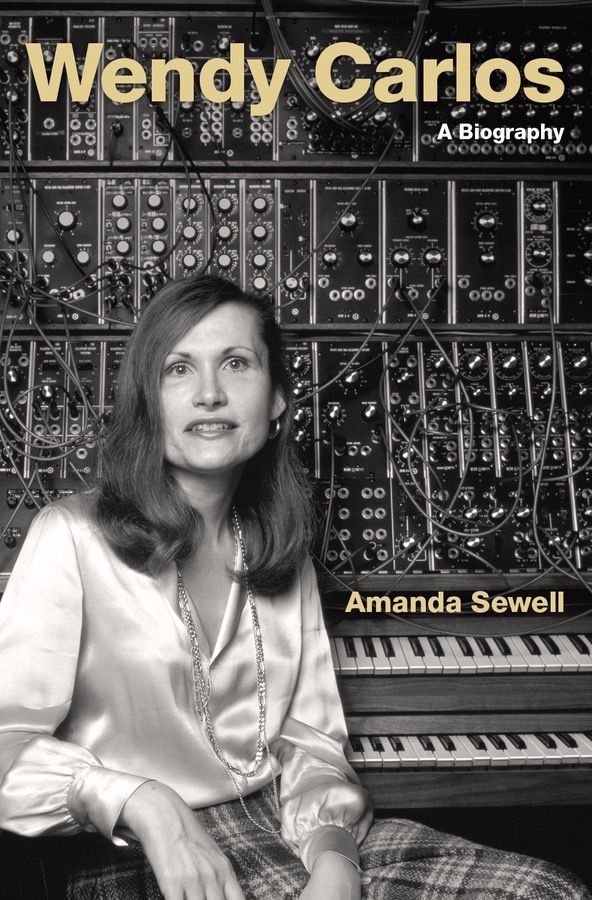 Geeta Dayal
Geeta Dayal
From Bach to Tron and more: a biography of the electronic-music great.

Wendy Carlos: A Biography, by Amanda Sewell, Oxford University Press, 248 pages, $34.95
• • •
Wendy Carlos is now eighty years old. She is one of the pioneers of electronic music, but also one who attained great commercial success. Her 1968 debut, Switched-On Bach, was her breakthrough album, created using a Moog synthesizer. It was one of the best-selling classical music albums of all time—ruling the top of the Billboard charts, winning three Grammy awards, and hitting gold and then platinum status by the 1980s. It became a pop-culture icon, inspiring everyone from Stevie Wonder to Giorgio Moroder to Leonard Bernstein. Even the notoriously finicky, high-strung musician and Bach expert Glenn Gould was captivated, pronouncing it “one of the most startling achievements of the recording industry in this generation.” Carlos released other successful records, but none of them gained the same mainstream popularity. She also worked on some of the biggest film soundtracks of the 1970s and 1980s—most notably Stanley Kubrick’s A Clockwork Orange and The Shining (for which she created the legendary title theme, with Rachel Elkind)—and composed music for the original Tron.
Carlos, though, has been notoriously private, eschewing interviews and turning down invitations to perform live. Her music has long been unavailable on streaming services, and can’t be purchased in MP3. (Carlos dislikes the format.) Her material is also hard to find on YouTube; her company, Serendip LLC, summarily issues takedown notices. (The best way to locate her music is to go to a well-stocked record store, and get it on used vinyl.) Her personal website, which still sports a charming HTML design circa the late 1990s, includes meticulous notes and several thorough essays, and has long been the best source of information straight from the source.
The musicologist Amanda Sewell’s Wendy Carlos: A Biography is the first serious book to examine Carlos’s legacy at length, both as a composer and as a transgender woman. It’s an essential read—not only for electronic music fans, but for anyone interested in the history of gender and popular culture. The book, though, faced some major challenges.
Sewell wasn’t able to interview the composer, relying instead on careful research and old interviews. I’m well aware of the hurdles this presented. For my first book, on Brian Eno, I couldn’t secure an interview with the main character in time, digging heavily through rare materials to help make up for it, and slowly stitching together a story from dusty archives. But I was able to interview over a dozen of his close friends and collaborators. Current interviews inject freshness into a storyline, and a newfound sense of time. Like a history documentary that cuts back and forth from hazy vintage footage to entertaining bon mots from talking heads, quotes from recent interviews open up the page, making the story feel more lifelike and readable.
Sewell’s book contains no new interviews, but it wasn’t for lack of trying. As she writes: “Dozens of people who have worked with Carlos over the past sixty years also declined or did not respond to requests to be interviewed. Not one person in any of Carlos’s past or present personal or professional circles agreed to speak on the record about her for this project.” The book progresses with Sewell as the sole narrator, which can get monochromatic at times, reading like a detailed, fact-filled report rather than a fun and colorful history.
That said, Wendy Carlos: A Biography is a great work of scholarship. We learn about Carlos’s early days as a student at Brown University and then at Columbia in the 1960s, laboring on the RCA Mark II synthesizer—a lumbering behemoth spanning an entire room—at the Columbia-Princeton Electronic Music Center. Her creative symbiosis with the inventor Robert Moog is also fascinating; the book provides lots of evidence for this, including the fact that, in the late 1960s, Moog said that many of his modules had features that originated as her suggestions. The biography also deals sensitively with her gender transition, deftly chronicling her ascent to fame in the 1960s (which was often uneasy behind the scenes) and the intense media scrutiny about her gender identity.
Those who can stick with it—from the long technical explanations of synthesizers to expansive, involved discussions of Carlos’s press interviews —will be amply rewarded. Some details could have been left out—like the names of Carlos’s cats at various points in her life, along with their specific breeds and particular behaviors. The biography, which progresses chronologically, also gets bogged down later on, when it becomes less about music and more about lawsuits, business issues, and other concerns.
Carlos was one of the first true global ambassadors of electronic music. The modern mass-produced synthesizer was invented in the 1960s, when electronic music literacy among the public was not high. In a radio interview with Gould from 1968, Carlos ably explains the emerging field and puts forth an argument for the synthesizer to be treated with the same respect as a traditional instrument like a piano. When Gould says, “I know there are a number of technical problems connected with the synthesizer as an instrument,” Carlos shoots back: “There are problems with a good Steinway.” Through the work of Carlos and other pioneers, electronic music was no longer the esoteric commodity it seemed to be in the past. As Sewell shows in her thoughtful and exhaustive book, it would go on to become part of the fabric of everyday life.
Geeta Dayal is an arts critic and journalist specializing in twentieth-century music, culture, and technology. She has written extensively for frieze and many other publications, including the Guardian, Wired, the Wire, Bookforum, Slate, the Boston Globe, and Rolling Stone. She is the author of Another Green World, a book on Brian Eno (Bloomsbury, 2009), and is currently at work on a new book on music.